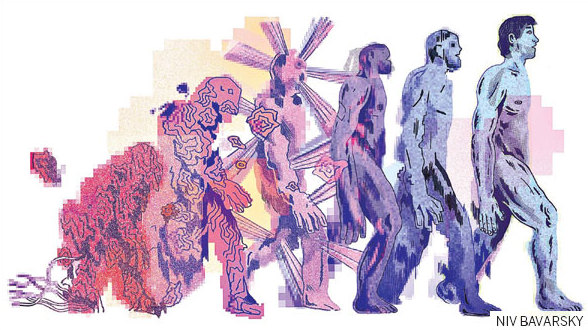I tweet. Follow me at #socialbot.
Updated: 2013-08-18 07:50
By Ian Urbina(The New York Times)
|
|||||||

Automated charlatans are programmed to have quirks and the gift of gab.
From the earliest days of the Internet, robotic programs, or bots, have been trying to pass themselves off as human. Chatbots greet users when they enter an online chat room, for example, or kick them out when they get obnoxious. More insidiously, spambots indiscriminately churn out e-mails advertising miracle stocks and unattended bank accounts in Nigeria. Bimbots deploy photos of gorgeous women to hawk work-from-home job ploys and illegal pharmaceuticals.
Now come socialbots. These automated charlatans are programmed to tweet and re-tweet. They have quirks, life histories and the gift of gab. Many of them have built-in databases of current events, so they can piece together phrases that seem relevant to their target audience. They have sleep-wake cycles so their fakery is more convincing, making them less prone to repetitive patterns that flag them as mere programs. Some have even been souped up by so-called persona management software, which makes them seem more real by adding matching Facebook, Reddit or Foursquare accounts, giving them an online footprint over time as they amass friends and like-minded followers.
Researchers say this new breed of bots is being designed not just with greater sophistication but also with grander goals: to sway elections, to influence the stock market, to attack governments, even to flirt with people and one another.
"Bots are getting smarter and easier to create, and people are more susceptible to being fooled by them because we're more inundated with information," said Filippo Menczer, a professor at Indiana University and one of the principal investigators for Truthy, a research program that tracks bots and Twitter trends.
Socialbots are being circulated around the Web for many purposes. A software developer from Australia designed a bot that automatically responds to tweets from climate change deniers, sending them counterarguments and links to studies debunking their claims. A security engineer in California programmed a bot to scoop up reservations for State Bird Provisions, a trendy restaurant in San Francisco. Mercenary armies of bots can be bought on the Web for as little as $250.
Other bots have more underhanded ambitions. Last year, officials from Mexico's governing Institutional Revolutionary Party were accused of using bots to sabotage the party's critics by appropriating some of their hashtags and flooding Twitter with identical posts, designed to silence them by tripping Twitter's spam filter.
During a dispute over a Russian parliamentary election in 2011, thousands of Twitter bots began posting hundreds of messages a day targeting anti-Kremlin activists, aiming to drown them out, security analysts said. Researchers say similar tactics have been used by the Syrian government.
Socialbots are tapping into an ever-expanding universe. Last year, the number of Twitter accounts topped 500 million. Some researchers estimate that only 35 percent of the average Twitter user's followers are real people. In fact, more than half of Internet traffic already comes from nonhuman sources like bots or other types of algorithms.
Dating sites provide fertile ground for socialbots. Christian Rudder, a co-founder of OkCupid, said that when his dating site recently bought and redesigned a smaller site, there was not just a sharp decline in bots, but also a sudden 15 percent drop in use of the new site by real people. This decrease in traffic occurred, he maintains, because the flirtatious messages and automated "likes" that bots had been posting to members' pages had imbued the former site with a false sense of intimacy and activity. "Love was in the air," Mr. Rudder said. "Robot love."
He said his programmers are seeking to design bots that will flirt with invader bots, courting them to talk to one another rather than fooling the humans.
Marketers and political groups are in on the socialbot game, too.
In 2010, the research group Truthy discovered a number of Twitter accounts sending out duplicate messages and re-tweeting messages from the same few accounts in a closely connected network. Two accounts, for example, sent out 20,000 similar tweets, most of them linking to, or promoting, the Web site of John A. Boehner, then the minority leader of the United States House of Representatives, before the last midterm elections.
Much of the social media remains unregulated by campaign finance and transparency laws. So far, the Federal Election Commission has been reluctant to venture into this realm.
But the bots are likely to venture into ours, said Tim Hwang of Pacific Social Architecting, which creates bots and technologies that can shape social behavior. "Our vision is that in the near future automatons will eventually be able to rally crowds, open up bank accounts, write letters," he said, "all through human surrogates."
The New York Times
(China Daily 08/18/2013 page9)